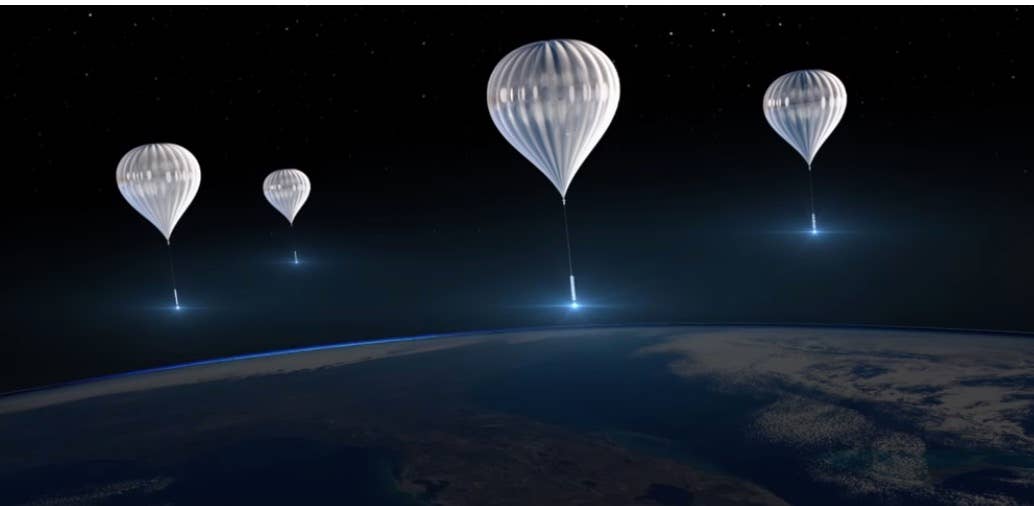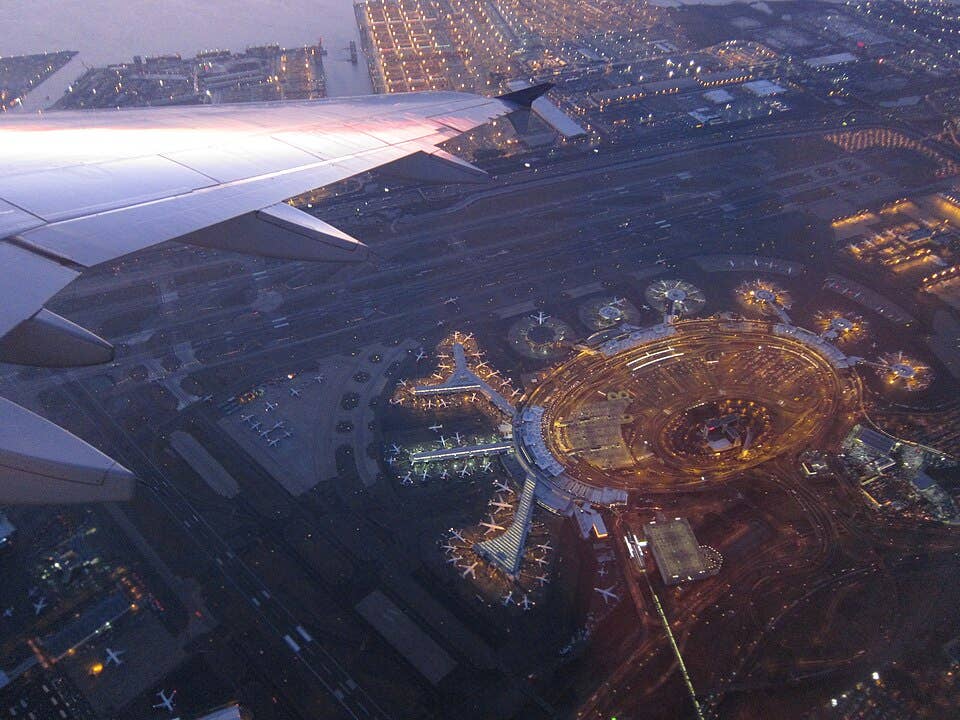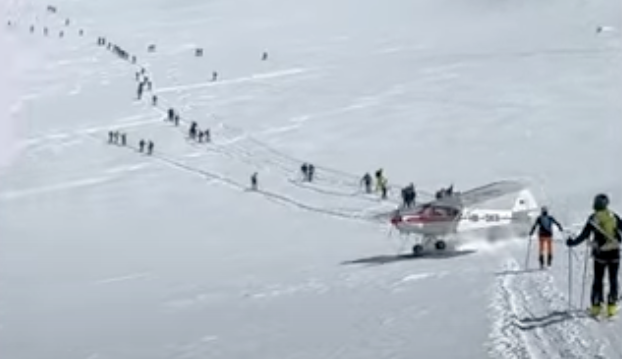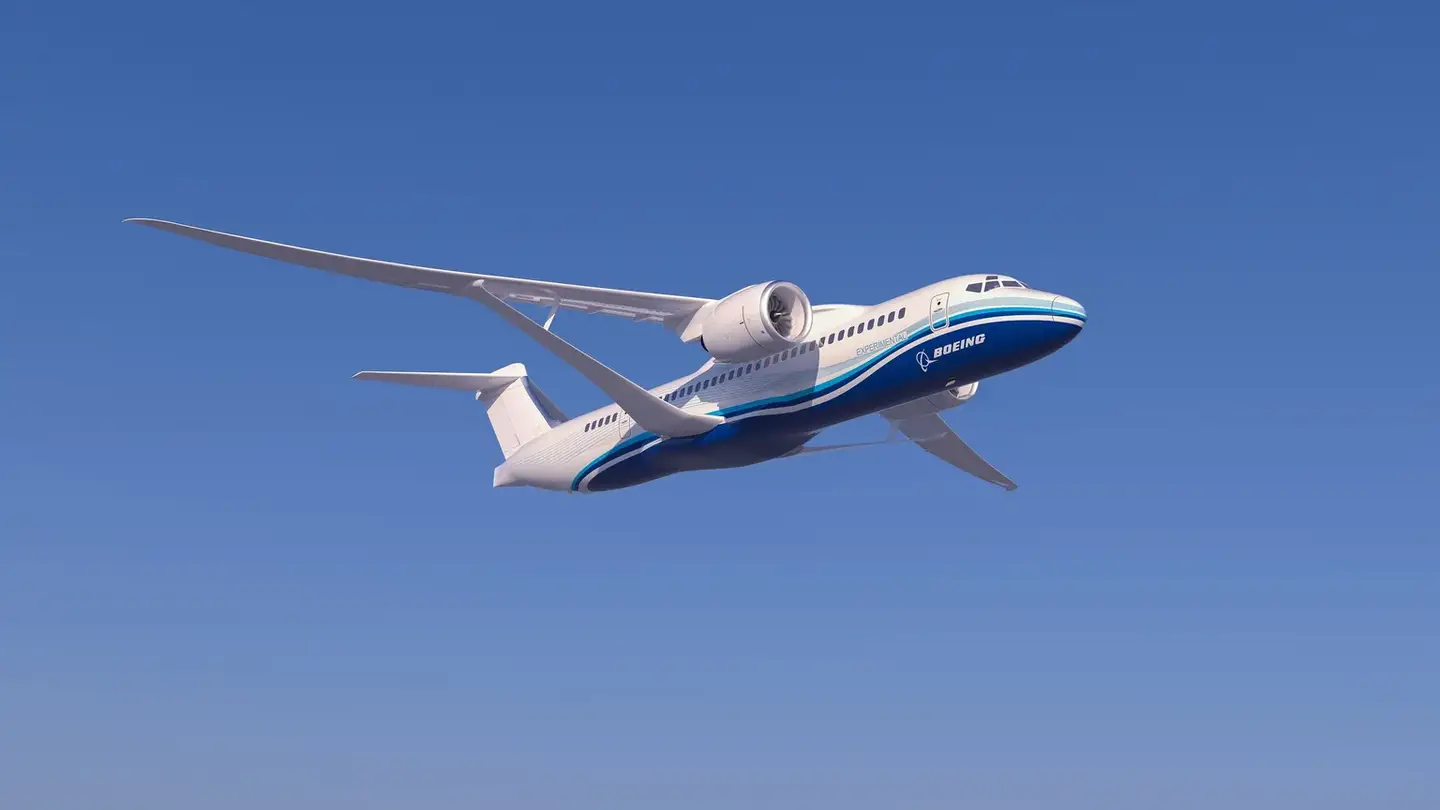Arizona Company Launches Balloon-Borne Surveillance
Arizona company called World View Enterprises says it’s within months of fielding balloon-based surveillance systems that will provide a less expensive alternative to satellite reconnaissance. The aircraft are called Stratollites and the company just completed a 16-day mission over four western states, according to Bloomberg.

An Arizona company called World View Enterprises says it’s within months of fielding balloon-based surveillance systems that will provide a less expensive alternative to satellite reconnaissance. The aircraft are called Stratollites and the company just completed a 16-day mission over four western states, according to Bloomberg.
The untethered and unmanned balloons fly near the top of the sensible atmosphere and will eventually be capable of maintaining station for months at a time, according to World View. They can carry payloads of up to 100 kg (220 pounds) including cameras and communication equipment.
The recent test flight ended on Monday in the Nevada desert, having launched from the company’s Tucson headquarters in mid-May. World View said the Stratollite achieved more than eight days of station keeping within a 120-km area and 55 hours within a 100-km area. The flight was controlled remotely from the company’s headquarters.
The market aim is to provide persistent, high-resolution surveillance for monitoring pipelines, mines, transportation systems and power grids. In addition to being cheaper than orbiting satellites, Stratollites may also be capable of much higher resolution imagery. “We’re five times closer to the earth than the nearest satellite,” says World View’s CEO Ryan Hartman. “Our imagination is sort of our limit with regards to where and how these systems can be used. Certainly there is a market in target surveillance and reconnaissance on a global scale,” he added.
And that worries some privacy advocates. “Everything depends on how expansive it is and how high resolution it is and how wide of an area it can surveil,” Jay Stanley, a policy analyst at the American Civil Liberties Union told Bloomberg. “There’s a very real potential here that these kinds of systems will lead to a pervasive aerial surveillance of cities where our every move will be tracked.”
World View isn’t alone in pursuing high-altitude untethered aerostat technology. Loon was spun off from Google X and is now an Alphabet Inc. subsidiary. The company is developing balloons to deliver internet services to remote areas. The company has made test flights of its balloon network, but hasn’t announced a formal deployment date.
World View is also in the near-space tourist business. It has been developing Voyager, a six-passenger balloon-borne capsule designed to fly to 100,000 on a five-hour flight. The capsule will have a minibar, a lav and earth communications capability. It descends to earth on a large, steerable square parachute. Tickets are priced at $75,000.






